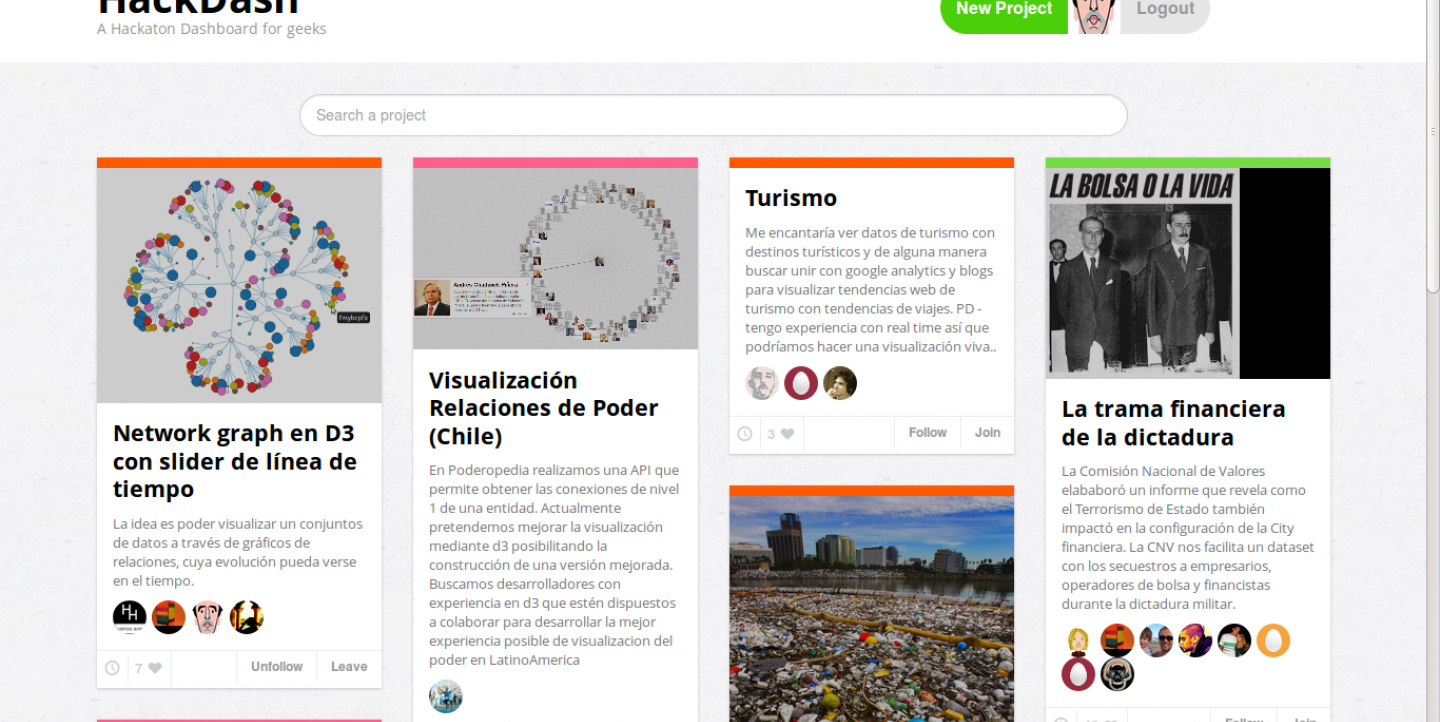The concept behind HackDash is simple yet powerful: a web platform that brings people and ideas together and allows anyone to know the state of each project.
The idea emerged in the midst of a whirlwind, while I was organizing the Hacks/Hackers BA Media Party last year.
Why? When working on collaborative projects, it’s always hard to know what the other team members are doing. Later on, it becomes hard to remember who worked on what, where the data were used and where the prototype was.
Those problems are solved by HackDash, a platform developed collaboratively by regular Hacks/Hackers Buenos Aires participants. HackDash aims to become a standard for productive collaboration on innovative projects for Latin America. As part of my ICFJ Knight International Journalism Fellowship, I’m helping encourage its adoption among global media innovators. The tool is open source and free to use. Registration is simple, and it's easy to get started: go to HackDash and organize your own hackathon, create your project and invite collaborators.
HackDash itself is an example of collaborative work. It started as an idea I mentioned on Twitter, and it became real after long hours of coding by programmer Dan Zajdband, followed by the work of more developers and designers. On Sept. 1 of last year, the day of the Media Party hackathon, the platform that was meant to organize ideas became a project itself.
A few days later, someone bought the domain hackdash.org and donated it to the cause. Who came up with the idea? Who owns the code? Nobody, and that's what makes an open project like this a meritocracy. As Mozilla’s Mitchell Baker told me in an interview for Página 12 last year, people tend to gravitate toward quality. People are free to choose whom to follow, and they usually want to work with talented people who will do a great job.
Since then, the dashboard has been used in a lot of meetings, and it promises to become a global platform for collaborative work. After the Media Party, it was used at the Node.js meeting in Argentina, at La Nación's DataFest and by our colleagues at Hacks/Hackers Santiago de Chile, who were inspired to build a similar project using a WordPress theme. We were also close to deploying it at Zanzibar’s TechCamp during the African News Innovation Challenge, organized by ICFJ Knight International Journalism Fellow Justin Arenstein.
We launched an improved version in March, then during the recent D3.js hackathon, we premiered the "self-installed" platform (code here), which already had two forks (versions).
One is the HackDash Auth0 platform that connects the HackDash with Google Apps, and the other one is a GovLab instance, a version that the government of the city of Buenos Aires has been using experimentally. The city used it last weekend with more than 30 projects and will be using it for its next hackathon.
The firm NXTP Labs, a tech accelerator based in Buenos Aires, is setting up its own instance to find new talent. Knight Mozilla Open News and organizers of the Global Editors Network News Summit in late June are also thinking of using it.
All of this is proof that open culture is also permeating productive meetings.
Knight International Journalism Fellow Mariano Blejman is an editor and media entrepreneur specializing in data-driven journalism.
This post was translated from Spanish to English by Maite Fernández.

